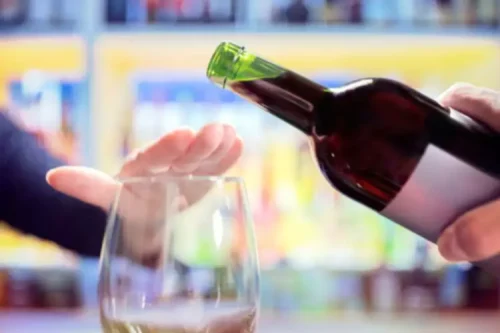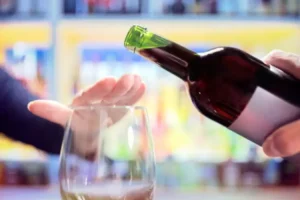
Use guided meditation apps if you find it challenging to practice on your own. Create a list of your values and qualities that you admire about yourself. Remind yourself of these qualities when you start to feel identified by past actions. Start a daily journaling practice focused on self-compassion. Each drug addiction day, write down three things you forgive yourself for and three things you appreciate about yourself.

How to Cope with Stress Without Turning to Substances

Cognitive Behavioral Therapy (CBT) for Shame and Guilt is a widely recognized therapy approach used in addiction recovery to address feelings of guilt and shame. The CBT model proposes that thoughts, emotions, and behaviors are interconnected, and by changing one’s thinking patterns, emotional responses can be managed more appropriately. Shame and guilt are often used interchangeably, but they have distinct differences.

The Importance of Developing Healthy Sleep Habits in Sobriety
Dwelling in guilt will almost inevitably lead to feeling shameful. Shame cuts much deeper than guilt does, which is what makes it so dangerous. When you’re caught up in feelings of guilt and shame, you may begin to feel as though you deserve these bad feelings about yourself. Ultimately, you are punishing yourself for the things you did in your addiction, and that doesn’t do you, or the people around you, any good. Shame is considered to be a “self-conscious emotion” by many mental health professionals. Being able to differentiate between guilt and shame is important because it can influence your behaviors and reactions.
- Once we have done this, the guilt and shame will be resolved so wedon’t feel the need to return to our old coping skills of using substances tocover these feelings.
- As individuals transform guilt into meaningful action and redefine their self-identity, they unlock the potential for profound healing and a revitalized outlook on life.
- People absolutely experience shame and guilt over their addictions.
Addiction Recovery Workshops
Overcoming shame and guilt in recovery https://ecosoberhouse.com/ is essential to fostering self-forgiveness, rebuilding self-worth, and breaking free from the emotional burdens that may hinder one’s journey towards sobriety. Self-forgiveness is a vital aspect of recovery, as it involves acknowledging past wrongs and committing to personal growth. This act of forgiveness can alleviate the burden of guilt and shame while promoting emotional healing. It encourages individuals to learn from their past actions rather than dwelling on them.
- When someone experiences guilt, they might think, “I did something bad,” which can motivate them to make amends and seek to change their behavior.
- Of course, addicts aren’t the only people who feel guilt andshame.
- Through this reconciliation, guilt can transform from a paralyzing emotion into a motivating force for positive change.
- Practice self-forgiveness and recognize that everyone makes mistakes.
- Got very involved in both and was Secretary of both meetings, etc.
- It is not merely about absolving oneself of past wrongs; rather, it’s a vital mechanism for promoting healing and growth.
- I want to quote the psychiatrist Carl Jung, he said, he was talking to me more in general, but let’s tie it into addiction.
- By understanding the role of these emotions and employing techniques such as mindfulness, self-forgiveness, and therapeutic engagement, individuals can begin to reshape their lives.
- While guilt can be a constructive motivator for change, shame tends to be more destructive, leading to feelings of unworthiness that can hinder recovery efforts.
Over time, the client develops new coping mechanisms and gains confidence in handling difficult emotions. In CBT sessions for shame and guilt, the therapist will work with the client to identify negative thought patterns and beliefs that contribute to their feelings of shame or guilt. Through cognitive restructuring techniques, the client is encouraged to challenge these automatic thoughts and replace them with guilt in recovery more positive self-talk.

Located in the serene surroundings of Lake Forest, California, our state-of-the-art facility offers a tranquil environment conducive to healing and growth. Don’t let shame and guilt hold you back in addiction recovery; learn how to address suicidal thoughts in addiction recovery today to create a brighter tomorrow for yourself. Self-compassion proves to be effective in combating negative self-talk; it equips the individual with the ability to handle negative emotions more flexibly than those who lack it.
- These emotions often isolate individuals from their communities and deter them from seeking help.
- Find inner peace, purpose, and connection on your journey to sobriety.
- Instead, work on shifting attitudes and routines to improve your ability to make wiser choices now and in the future.
- Behavioral Couples and Family Counseling methods, such as Behavioral Couples Therapy (BCT), are integral components of SUD treatment.
- And it was coming out of long-term addiction that got worse and worse.

I think about this sometimes and I would say this to parents, is that when your son or daughter is trapped in an addictive cycle, you can bet your bottom dollar. I know this firsthand, all into my own history of addiction and recovery, that to get into support groups, such as 12-step support groups or other resources. One of the reliefs there is that there’s no stigma there, there’s no judgment ideally, and most of the time, there isn’t. That’s part of what’s saving about being in these groups because you’re with people that get it and don’t judge it. We offer a wide range of treatment options designed to fit your unique needs, giving you the support and guidance needed to overcome addiction and reclaim your life. Forgiving yourself and others is a key part of healing from shame and guilt in recovery.

Recent Comments